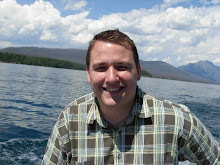While I am a consumer of PBS television and enjoy their relatively calm take on the days events I often find myself repulsed by the slant of their "journalism" or the views their commentators take on certain issues. I was especially appalled on a National Press Club debate on the subject of health care rationing. While this nudge toward more control is not surprising to many who are/were paying attention it is surprising at the speed at which its arrived.
The latest public testament from the progressive left is the doctrine of health care rationing. People who spoke up during the public debate that spoke of the coming health care rationing and "death panels" were derided as sensationalists or inflammatory and were quickly dismissed. It seems however that these voices in the wilderness were speaking the truth.
The vicious cycle of government intervention into the free market with one variation or another goes something like this; The government sees something that they would like to make more available to the public, the next step is some sort of guarantee through takeover, public financing or mandate. These artificial constraints on the marketplace flood the market with new consumers and higher demand which deplete resources and create shortages. The government responds to these shortages by rationing. So the market always wins, but what we must look at is in what context does it claim victory? Does it claim victory with the drab and grey backdrop of social democracy with ever increasing controls and intrusion into our daily lives? Or does it claim victory in the dynamic and bold marketplace of a liberal Republic with our liberties still intact?
A common sentiment in the pro-rationing movement is that they believe that if we are able to focus resources through the government we will be able achieve a specific desired result. For instance, the pro-rationing debaters posited that if we could re-focus the resources that companies expend on researching what this panel viewed as unnecessary technologies then so much more could be accomplished. On the surface this may appear to make sense, but it violates a principal that Friedrich Hayek (1974 Economics Nobel Laureate) outlined in "The Constitution of Liberty" that says that the more focused or centralized resources are, the less likely that certain discoveries that we currently know nothing about can be made. Essentially supporting the Socratic Maxim that, "The only real wisdom is knowing you know nothing". I think this is a valuable ethic, but alas it is very difficult for it to penetrate the cloud of smug and ignorant self assurance that hangs like a plague in the halls of government.
Another common sentiment is that if only Grandma would die quicker we could devote so much more in the way of money and health care infrastructure that many other lives could be saved. With a straight face and no recognition of the evil they eruct they posited that essentially grandma has no real right to make these decisions for herself because after all we are paying for this now. With all of the research done on comparative effectiveness the "community" has decided that this hip replacement or that pacemaker really gives no benefit to society because she is no longer a producer. Meanwhile Grandma twists in the wind and we justify our evil deeds by telling ourselves that this is what she really wants, that sick people don't think rationally and that they can't be trusted to make decisions regarding their own health.
These are not American ideals. These ideas come from a long and dark world history where the state or the "community" made decisions for people, where the state was sovereign and the individual subject. These are not our values. The sovereignty of the individual is at stake and if it's lost it is very difficult to restore.
Sunday, June 13, 2010
A Second Look at Public Health Care
Labels:
Freedom,
Healthcare,
Liberty,
obamacare,
principles,
statism,
statists
Subscribe to:
Post Comments (Atom)


No comments:
Post a Comment